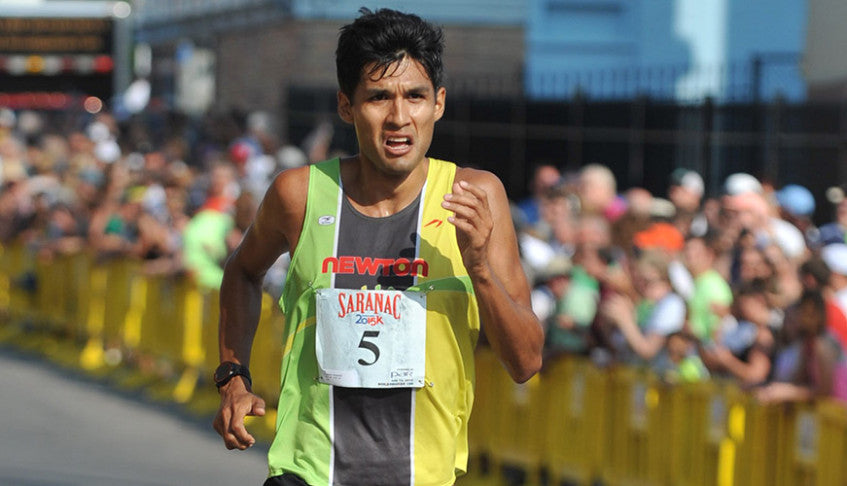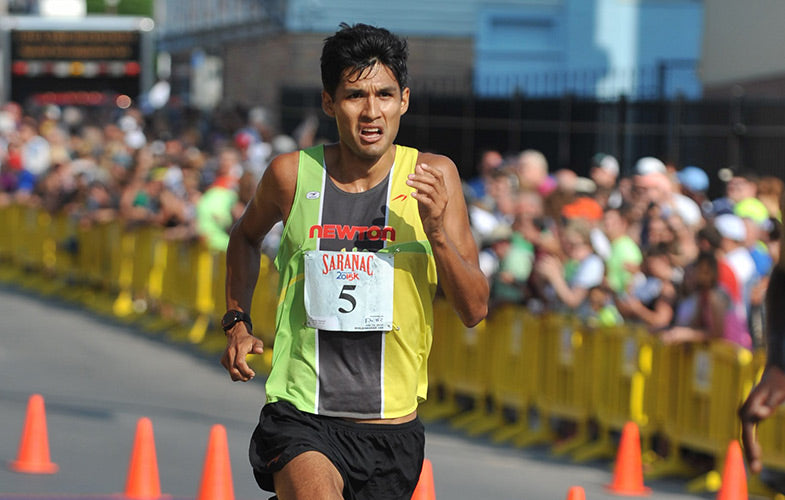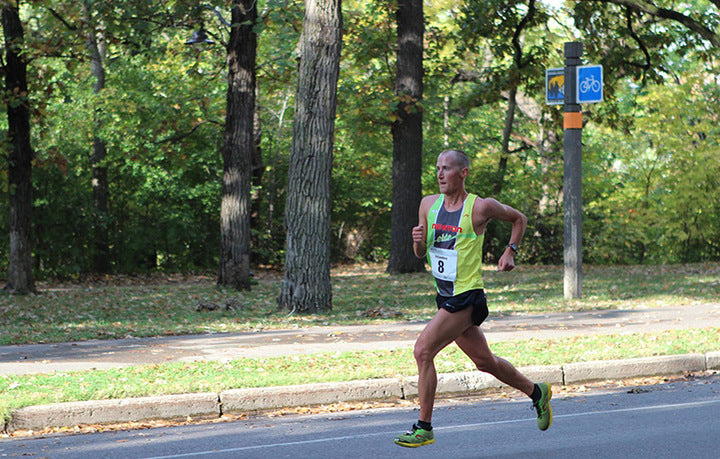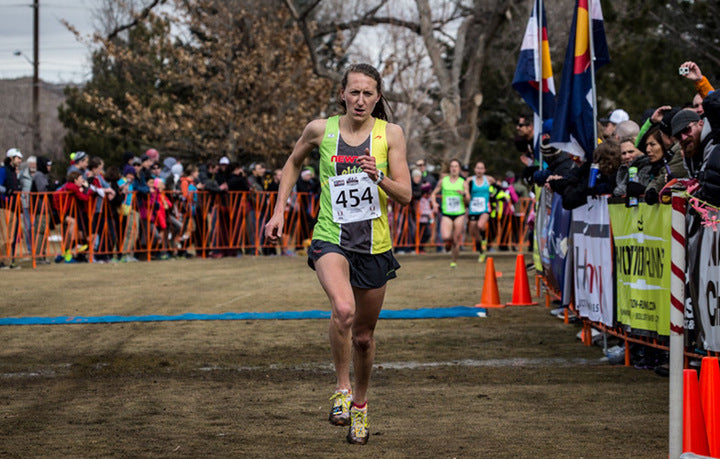
2016 Olympic Trials
uncategorized9 February 2016
Qualifying for the Olympic Trials is a huge accomplishment. Some athletes work their entire careers with this goal in mind. Once an athlete hears the news that he or she has qualified, they’re immediately flooded with emotions of excitement and nerves. Newton Running is proud to announce that we have four athletes from Newton Running Elite that qualified for the 2016 Olympic trials, so we wanted to ask them a few questions about their training and expectations for the race on February 13 in Los Angeles.

Fernando Cabada
Fresno, CA. Marathon PR – 2:11:36
1. Describe some of your training as you’ve been preparing for the Olympic Trials.
For the main 10 weeks of my marathon build up I averaged over 100 miles per week. Some key workouts I have done was 12x1km at an average of 2:59 for each and for rest in between was a 200 meter jog done in under 90 seconds all done at 7700 feet elevation. I have gotten in three half marathons averaging right under 1:04. Biggest workout was a marathon 4 weeks before the Olympic Trials in 2:18:14 at Carlsbad Marathon.
2. Do you have a pre-race ritual that you make sure you do before every race?
I always try to eat chicken and pasta the night before all races.
3. Is this your first time going to the Olympic Trials? If not, how many times have you been and what was it like?
This will be my second Olympic trials, my first was in 2012 where I was 7th place in 2:11:53. It was a wonderful experience and can’t wait to experience this upcoming trials. Happy to have good experience heading in.
4. What are you thinking as you step up to the starting line?
“Con Todo” (which means, with everything)

Jeannette Faber
Nashville, TN. Marathon PR – 2:32:37
1. Describe some of your training as you’ve been preparing for the Olympic Trials.
I ran the Rocket City Marathon in Huntsville, AL in early December as a long hard run and that felt good. Unfortunately my build up to the trials has been hampered by a nagging hamstring issue and I have not been able to get in the mileage or the speed work that I had hoped for.
2. Do you have a pre-race ritual that you make sure you do before every race?
I don’t do this for every marathon but my two sisters were with me for my first marathon in 2004 and Jenny braided my hair. Jenny and Julie will be with me again in LA so I will ask Jenny to braid it again before the race on Saturday. Aside from that I don’t have any real rituals or superstitions.
3. Is this your first time going to the Olympic Trials? If not, how many times have you been and what was it like?
This is my second time running at the Olympic Marathon Trials. In 2012 I was in much better shape but had to stop running shortly before the trials due to plantar fasciitis pain. Having rough buildups both in 2012 and this time around makes me realize just how hard it is to come into this race fit and 100% healthy. Regardless of that injury I had a great experience in 2012 and still ran a tiny PR (at the time). It is wonderful thing when the best marathoners in the country all come together to compete, even though only three make the team. I think it does a lot for our sport and the camaraderie among athletes
4. What are you thinking as you step up to the starting line?
As I step to the line I will be grateful for the opportunity to compete at the Trials and focused on executing my race plan.
Amanda Scott
Boulder, CO. Marathon PR – 2:44.10
1. Describe some of your training as you’ve been preparing for the Olympic Trials.
The training leading up to qualifying for the trials and as I prepare for the trials doesn’t deviate too much from what I normally do with my coach (Steve Jones) and my training group (Boulder Harriers). The biggest difference for me has been consistency. The problem I have is that I really like running and sometimes that gets me into trouble. I have a tendency to overdo it and not listen to my body when I feel a little niggle coming on. Sometimes that means that before I even realize it, I find myself with an injury. I’ve had two stress fractures over the past four years, one in my right foot and one in my left foot. Luckily or at least hopefully, I’ve learned from those and I’ve been injury free since May.
Leading up to the race in Houston I put in a few more miles than I have in the past, but I added them in slowly. I had a few weeks around 100mi and during that time I made sure to get extra sleep, recovery, and nutrition. Unfortunately, my job requires a good deal of travel and often requires me to come into work before dawn. That leaves me having to do workouts on my own before the rest of my group’s training begins. Luckily, my coach is willing to come early and the two of us had a lot of quality sessions together. Our core sessions include 5min, 3min, 2min, and 90s reps, but we go all out on those. We also do hills and tempos on alternating weeks. I chose to do Houston Marathon because I knew with the holidays in December I would have a few weeks with no work travel. I think that made a difference being able to stay home, rest, and train without flying all over the country.
2. Do you have a pre-race ritual that you make sure you do before every race?
I really try to focus on rest, nutrition, and visualization leading up to a race. Before the race in Houston, I wanted to find something to distract my mind and my time during the taper week. My friend gave me his 3,000 piece puzzle of the Maroon Bells. It’s quite an undertaking, but it kept me from trying to run and kept my mind off of worrying about the race. Before each marathon, I take a day off two days before the race and then the day before I do a 30-35min with about 6 pick-ups between 45-60s. This starts to shake out the taper and get my legs ready to roll. The morning of the race it’s the typical coffee, banana, peanut butter, and bagel plus I’ll look at a few inspirational quotes and jam out to some music. I was fortunate enough that I had some friends and training partners also racing Houston so we got to warm up together and encourage each other all weekend.
3. Is this your first time going to the Olympic Trials? If not, how many times have you been and what was it like?
This will be my second time going to the Olympic Trials. I qualified for the 2012 Trials after running 2:45:26 at the 2011 Indianapolis Monumental Marathon. I had a great time racing in Houston for the 2012 Trials, but my foot started to hurt about half way through and that injury lasted a few months. I finished the race but I didn’t ‘race’ the whole time. I used the last lap as a victory lap. This time I just want to go out there feeling fresh and have fun. I want to race smart and see who I can pick off towards the end of the race. For me, this is hopefully a stepping stone to running faster and smarter marathon in the future. I never thought I’d be running at the Olympic Trials or even still running after college, so all of this is still a dream come true and I’m excited to see where the dream goes next.
4. What are you thinking as you step up to the starting line?
I’m thrilled to be going to the trials and excited to get the opportunity to stand on the starting line with the very best marathoners in America. I’m hoping to stay relaxed the first half and then see how many people I can pass the second half. I need to try and not get intimidated by the other runners and just be confident in my training and myself. I have to also realize that most people running in the trials don’t have to travel 30-40% of the time for work or work 50+ hr per week in addition to training. I have a good friend that lives in the LA area and she promised me that if I made it to the trials, we would go to Disneyland, so I’ll be thinking about going to Disney during the race as well!

Tyler McCandless
Boulder, CO. Marathon PR – 2:15.26
1. Describe some of your training as you’ve been preparing for the Olympic Trials.
I believe that consistency is more important than any specific workout or short term build-up. In the 2015 calendar year, I ran an average of 92.5 miles per week and only had one unplanned day off due to illness. In the last nearly two months, I’ve averaged 105 miles per week with some of my fastest and toughest workouts. I feel confident I am in the best shape of my life going into the 2016 USA Olympic Marathon trials.
2. Do you have a pre-race ritual that you make sure you do before every race?
Three hours before every race, I drink coffee, Red Ace Organics Beet Juice, and have oatmeal with peanut butter. That’s about it for pre-race rituals; however, in order to keep my sanity and keep off my feet I usually read 1-2 books in the last few days or week leading into a peak marathon.
3. Is this your first time going to the Olympic Trials? If not, how many times have you been and what was it like?
I competed at the 2012 Olympic Marathon Trials as a 25 year old. I was so new out of college that I felt like a rookie. I made the mistake of thinking that I needed to do so much to be prepared to race well and in doing so I over-trained and fatigue won that day. This year I’ve incrementally increased my mileage and intensity, but I have not over-done it. The biggest difference this year is that when I toe the line in Los Angeles; my parents, my girlfriend, and my girlfriend’s parents will all be there as well as many friends and family. That support will go a long way in carrying me mentally and physically for 26.2 miles.
4. What are you thinking as you step up to the starting line?
“First with the head, then with the heart, that’s how you win from the start.”


